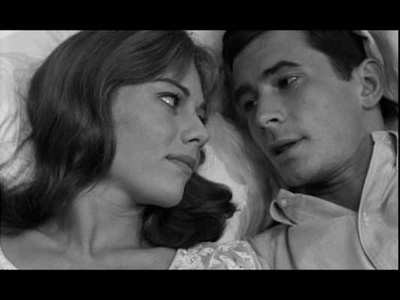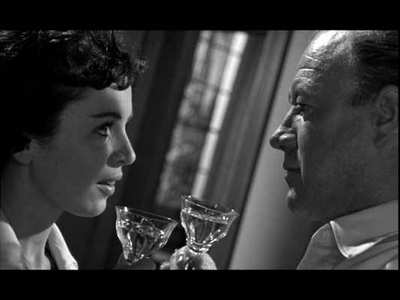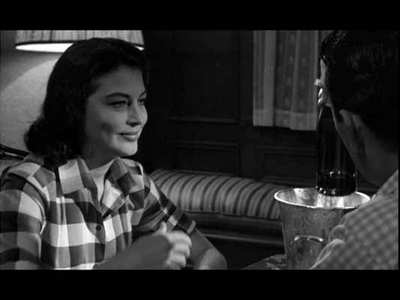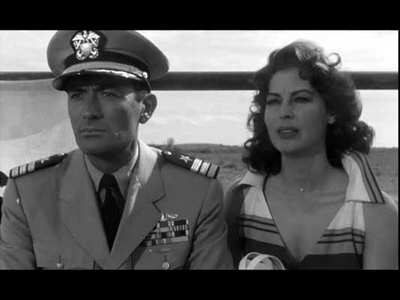Review of On The Beach
Introduction
As a radiation cloud casually sweeps across the globe, decimating all human life in its wake, only the Aussies have so far been spared. Yes, it`s the end of the world as we know it time again, although in this case, nobody seems to mind. Aware that doom is imminent, submarine commander Gregory Peck and his 1st officer Anthony Perkins orbit awkwardly around their respective dysfunctional females and go on maneuvers charting the ghostly echoes of a post-apocalyptic San Francisco. Fred Astaire turns up occasionally as the requisite doomsday naysayer livening up the characters` listlessness, somewhat, as they all trudge inefficaciously towards armaggedon. Whilst the vagueness of the scenario makes any political critique pretty specious, this is, broadly, another pacifistic liberal critique from Stanley Kramer`s stable of mild-mannered activism.

Video
Terrible. Non anamorphic. Blotches, scratches, dirt and damage everywhere.

Audio
Worse. Subtitles are almost essential to hear the crackling recording of the dialogue.

Features
Zip.

Conclusion
Stuffy, ponderous, cataclysmically uneventful melodrama, pumped so full of its mood of eerily rootless futility that the drama becomes an airless redundance. Kramer is clearly aiming for the redemption through human dignity angle, but as the characters try to come to terms with the futility of their plight, their shell-shocked disconnection comes off as creative inertia, the story drained of any identifiably human anchors to this most man-made of potential holocausts. We can only assume that the desolate plotting and lugubrious pacing are trying to inject some genuine existential anomie into the proceedings, and whilst the minimalist, anti-spectacle approach has worked before (in, say, `Last Night`), `On the Beach` lacks intelligent writing and compelling characters to off-set its status as one of the most tepid apocalypse movies ever made. The delivery is haughty and passionless to begin with and the stilted dialogue, insecure, sluggish plotting and heavy post-production cutting conspire to produce a laborious endeavor that doesn`t reap substantial rewards from its promising premise, instead merely producing an aura of emotional apathy.
If Perkins and his store-bought Army wife lack chemistry, Gardner and Peck look at one another`s chins like flies twitching on a curtain. The film is on firmer ground in the all-male world of the sub, where Perkins, Peck and Astaire find a certain communion in the shared, silent struggles of their pragmatic masculinity. Initially the latter`s presence feels incongruous, and whilst his lithe physicality is at odds with Kramer`s talking-heads approach, his coarse features lend him a certain weathered screen weight. As well as stubbornly reliable stars, there are some stylish Dutch angles and expressionistic blocking, which adds some nauseous, off-kilter subtext to a story significantly lacking in affecting drama. The result is often visually arresting, but dramatically anemic.
It`s all a thoroughly civilised depiction of `The End`, the last line after all is the almost self-parodic "I think I`ll have that cup of tea now." The biggest problem remains the characterisations - stoic men mouth robotic dialogue with a cryptic coldness whilst hysterical women-folk put on a quivering face of bourgeois composure before succumbing, on cue, to shrill paroxysms of despair. The results are so soulless and mechanistically anonymous that it`s hard to care one iota about the obliteration of the landscape and its 2-D inhabitants. It`s the end of the world as we know it, and you won`t care.
Your Opinions and Comments
Be the first to post a comment!